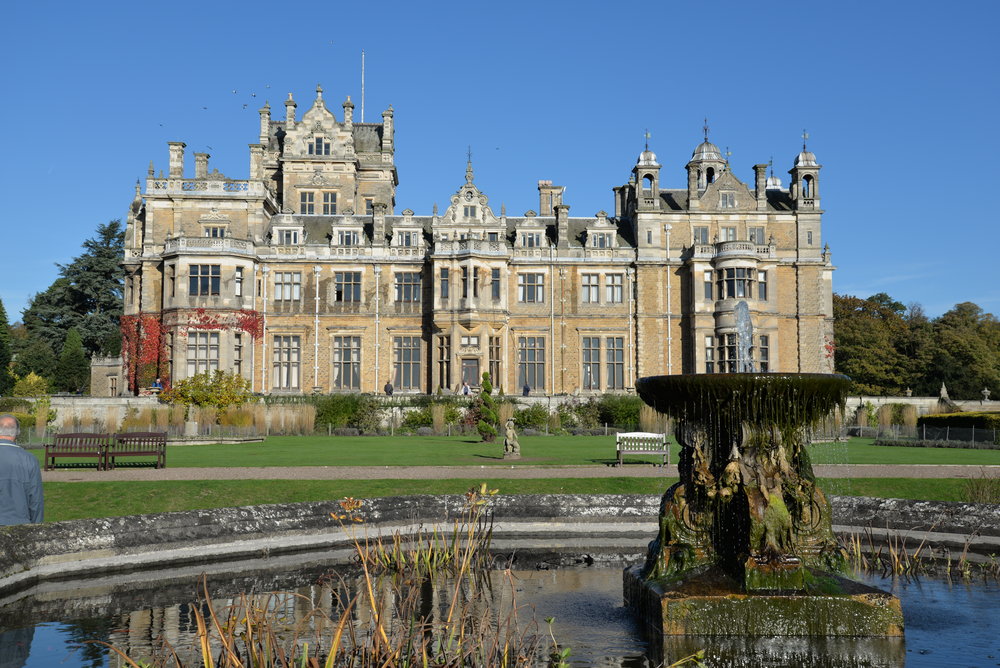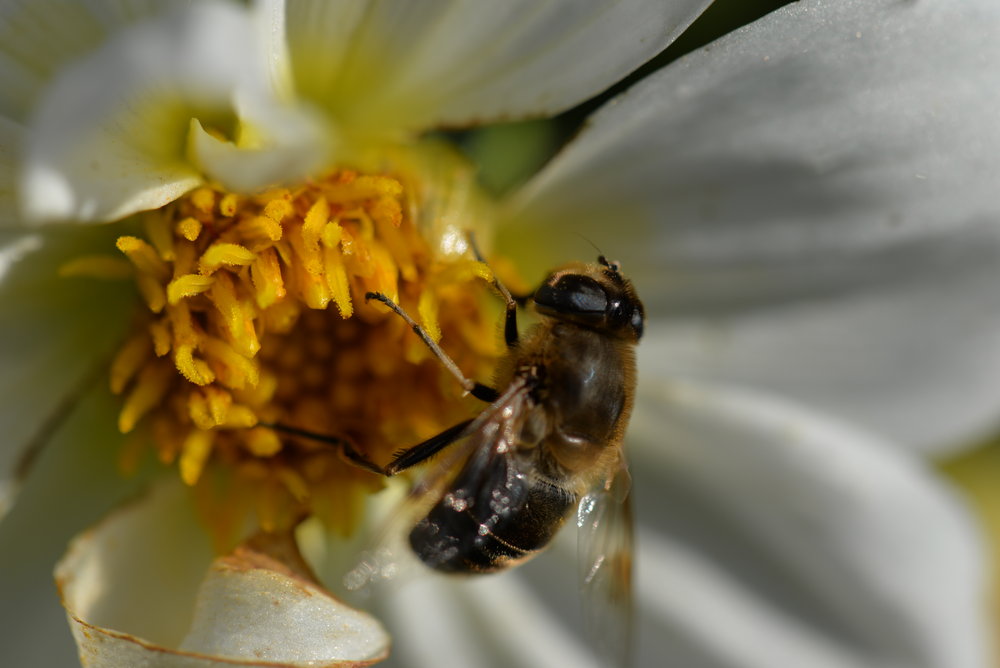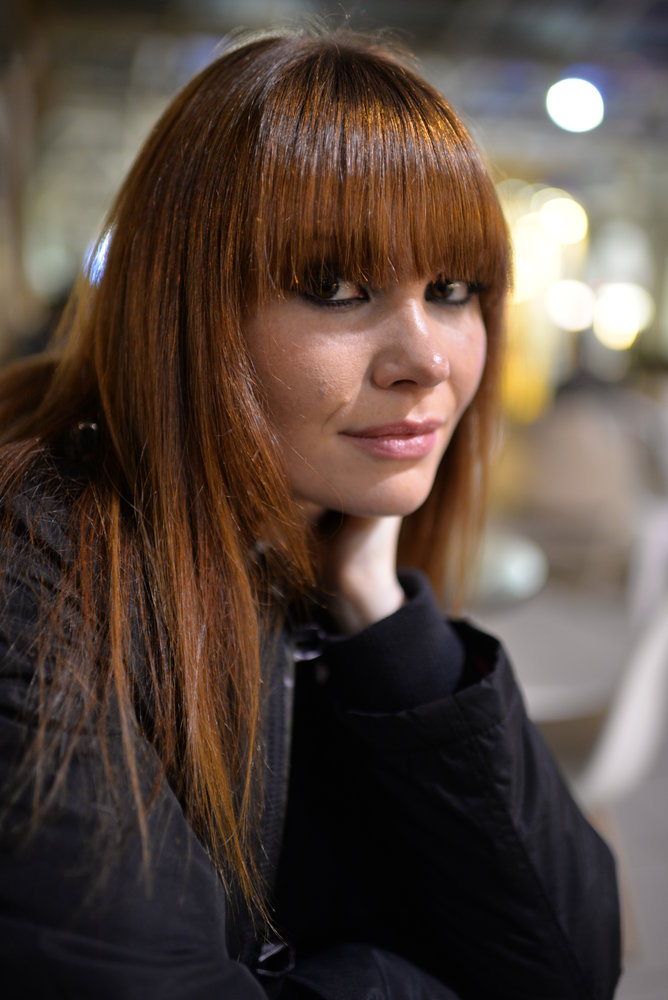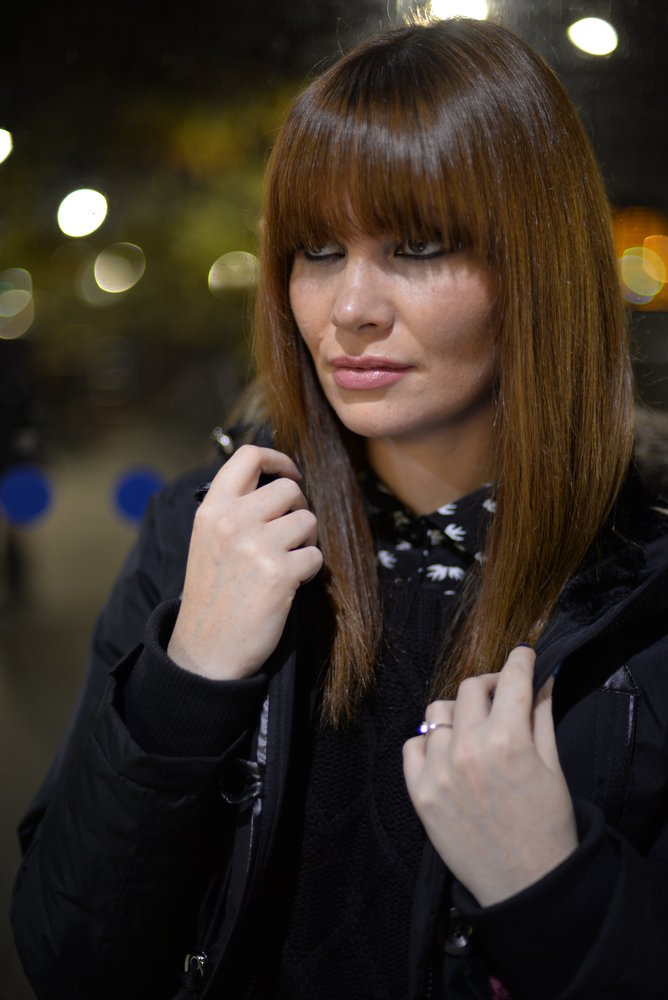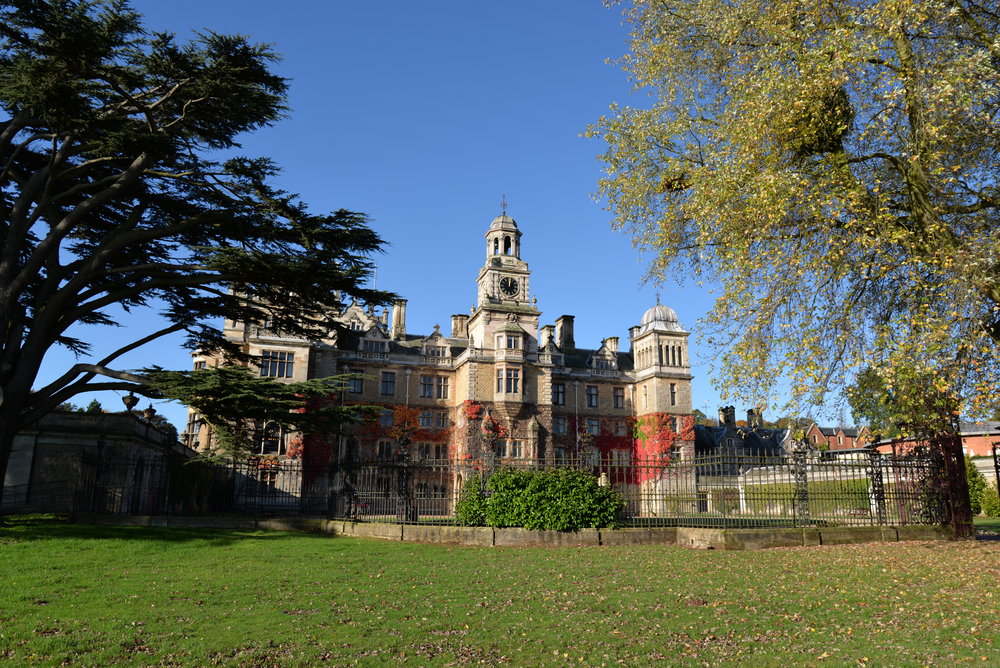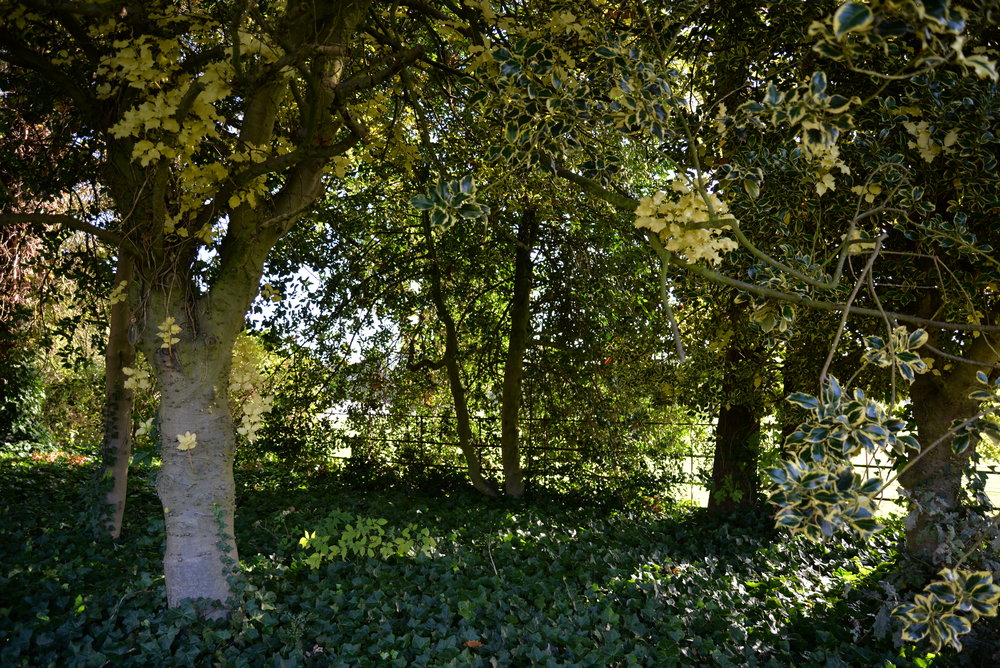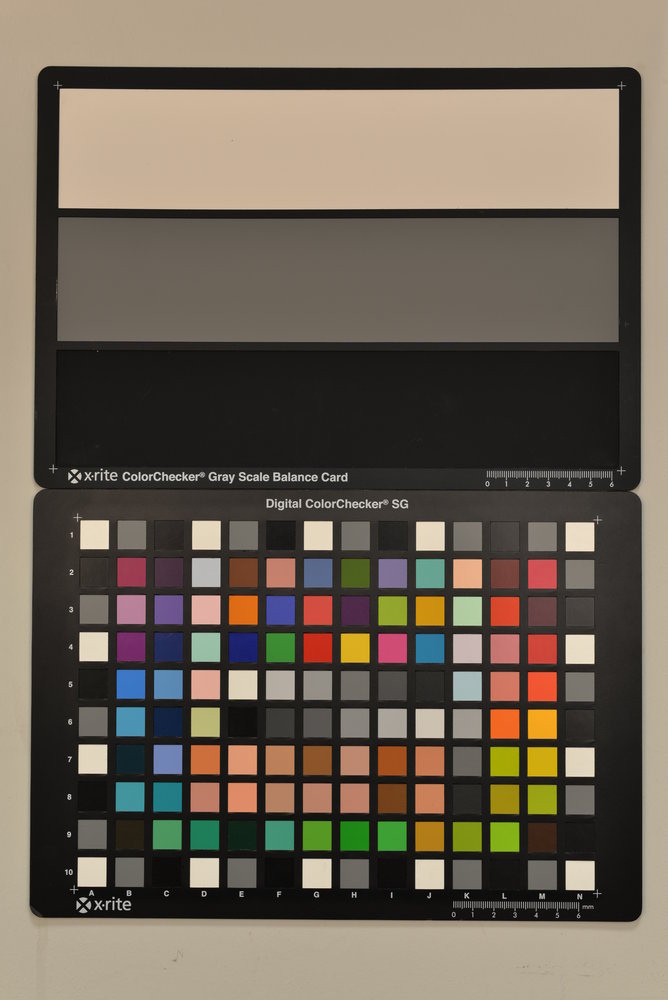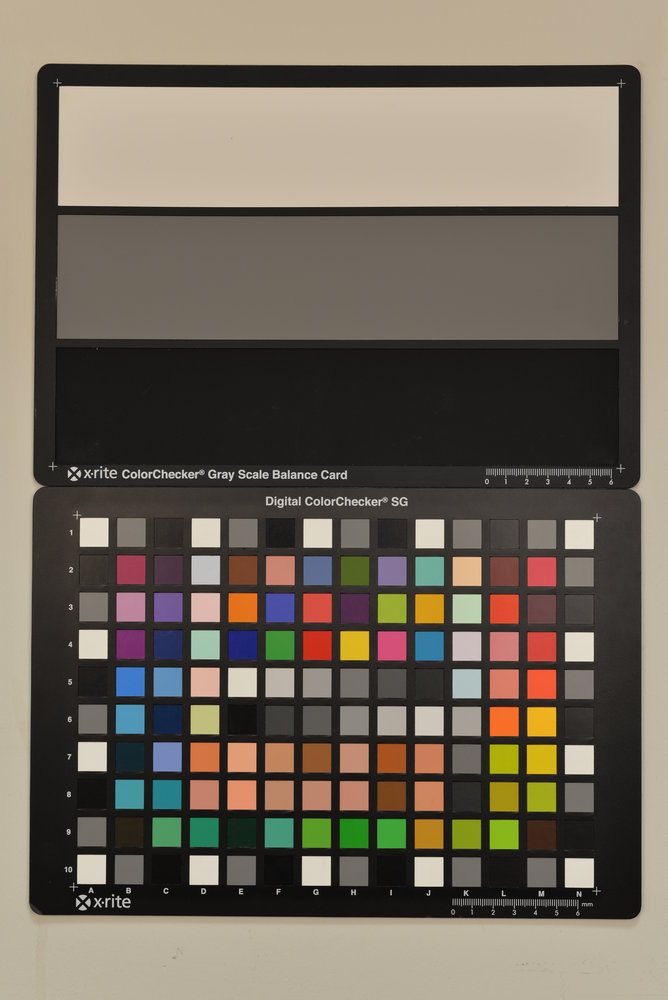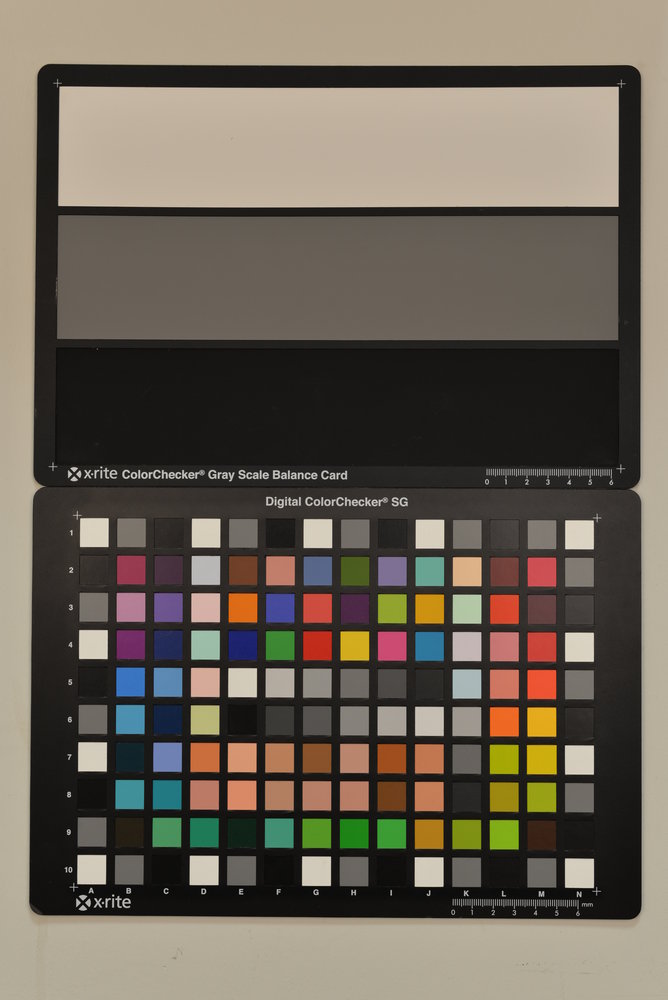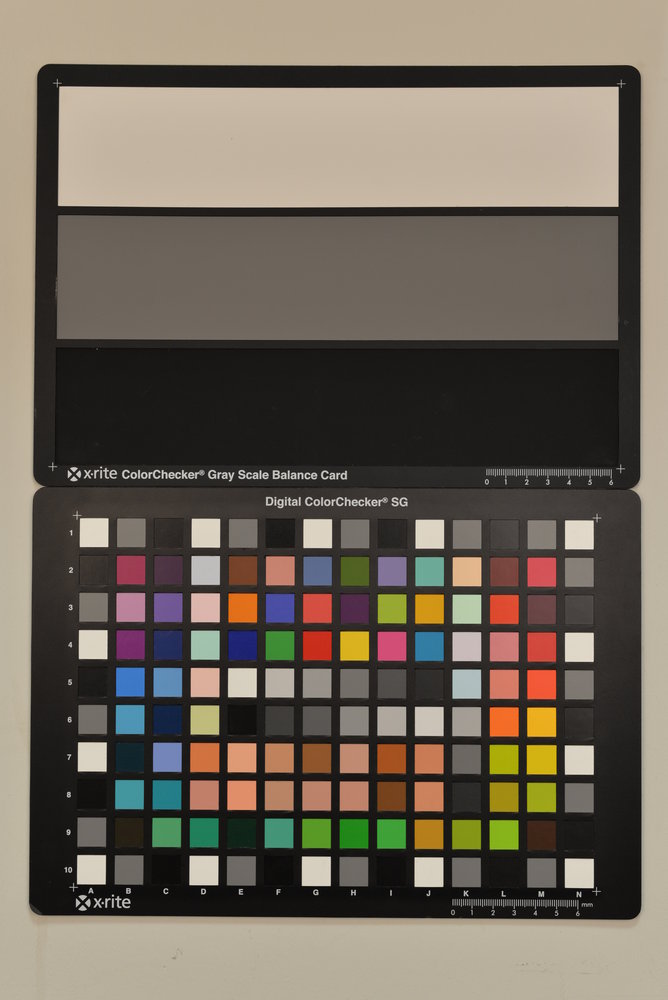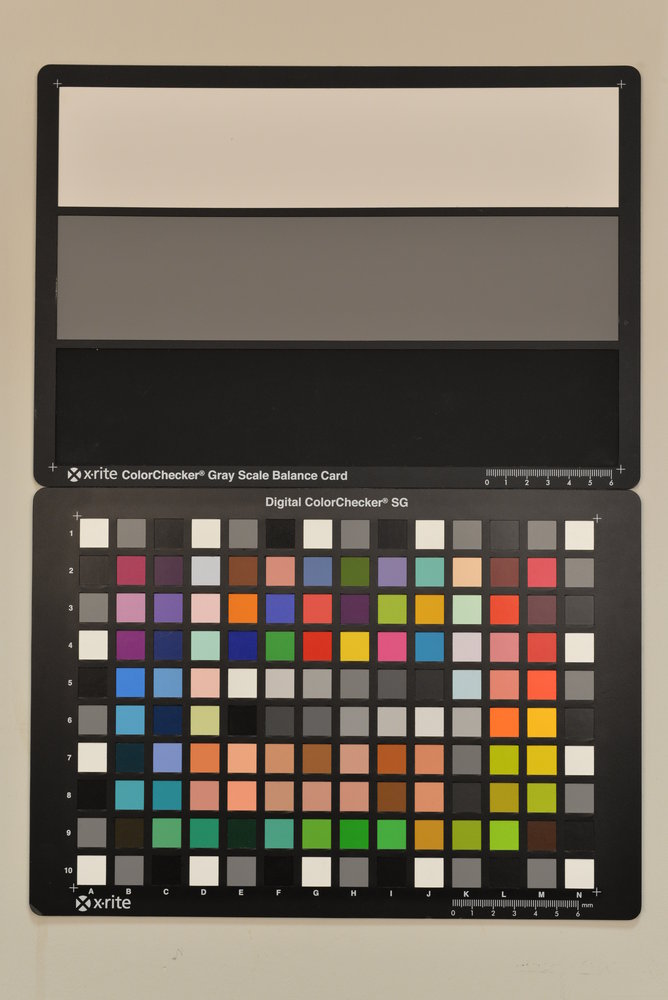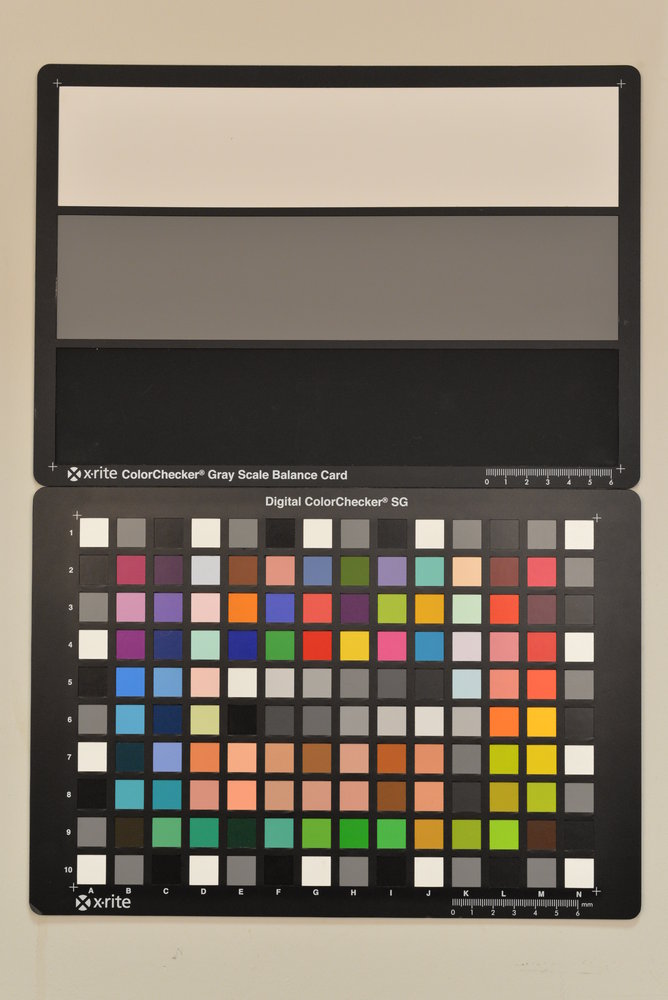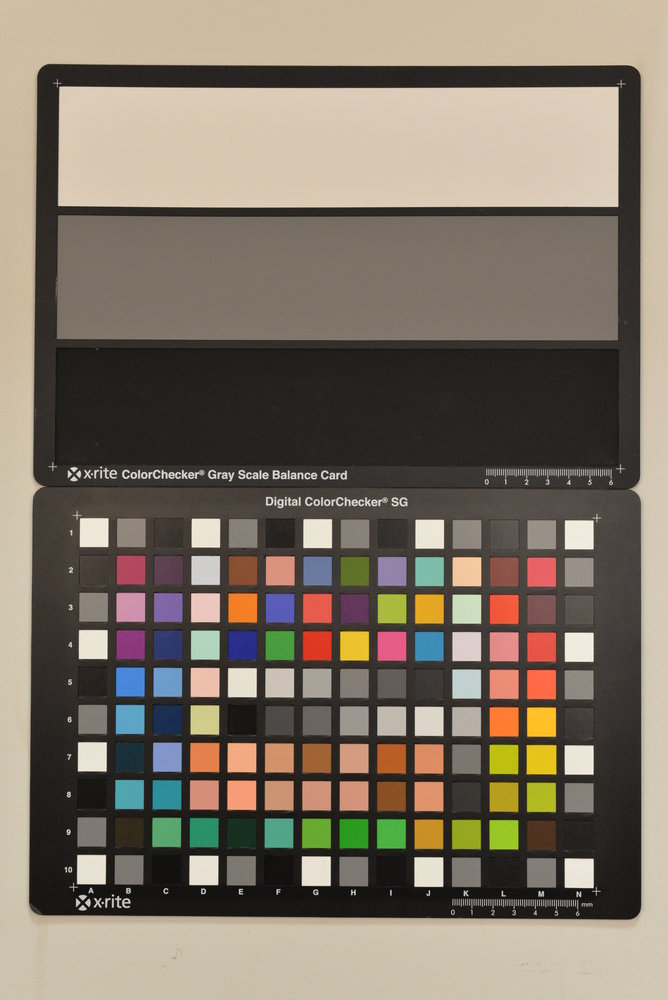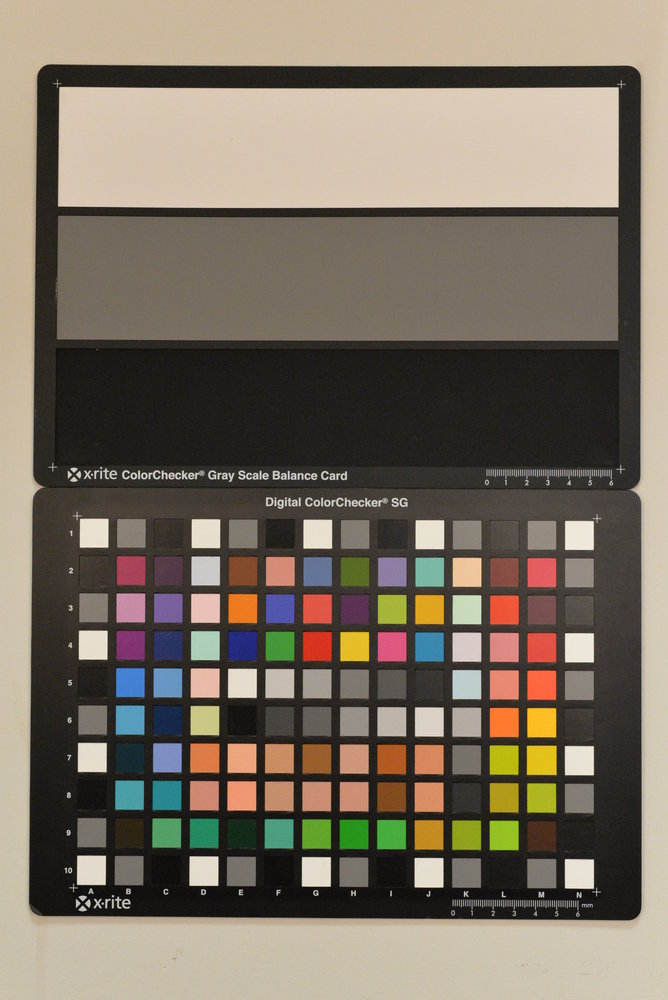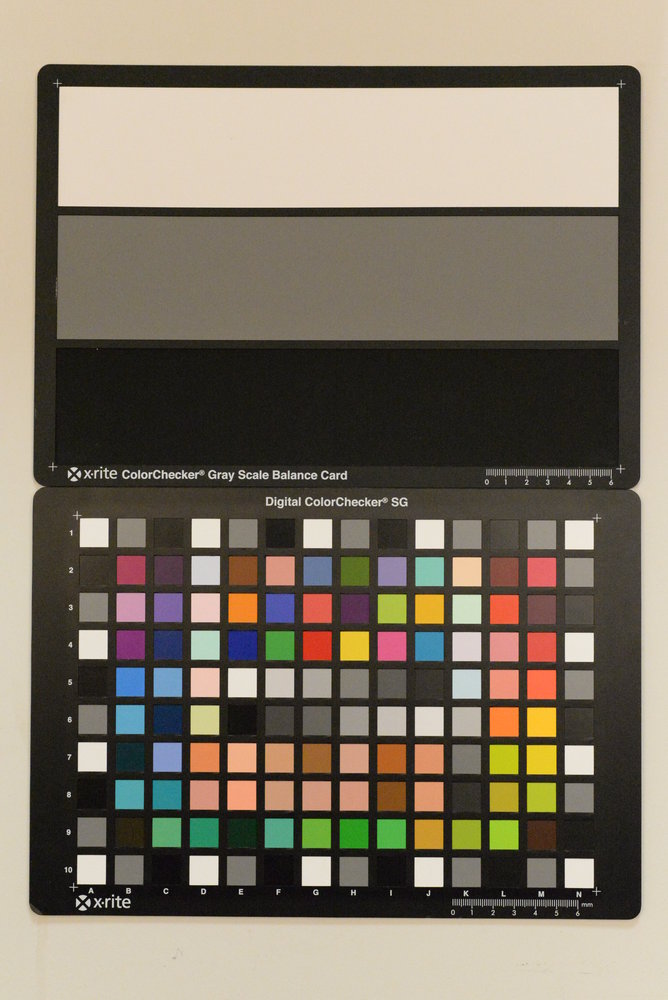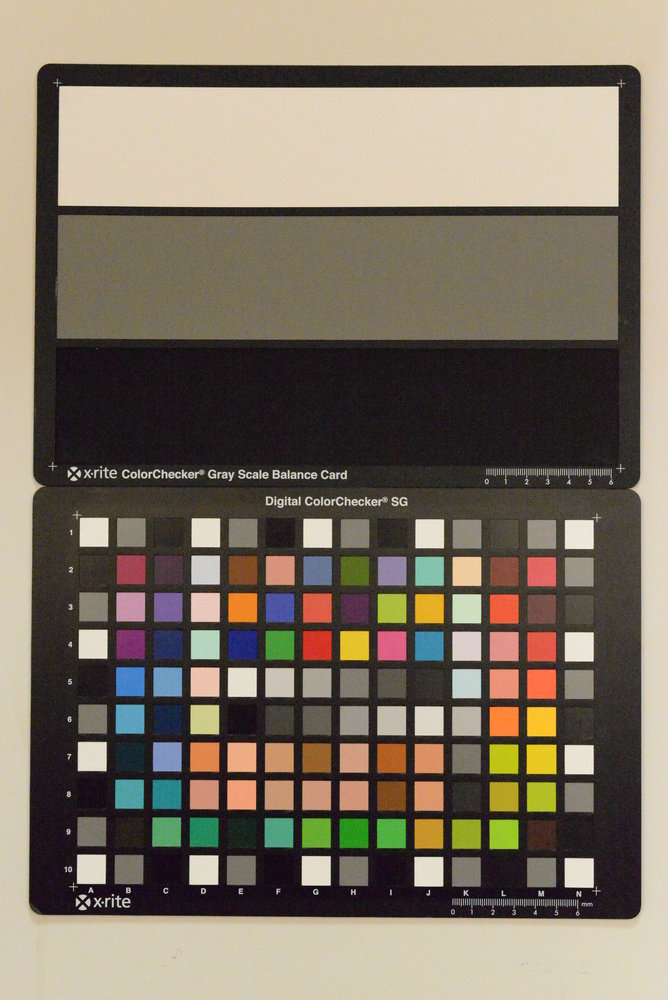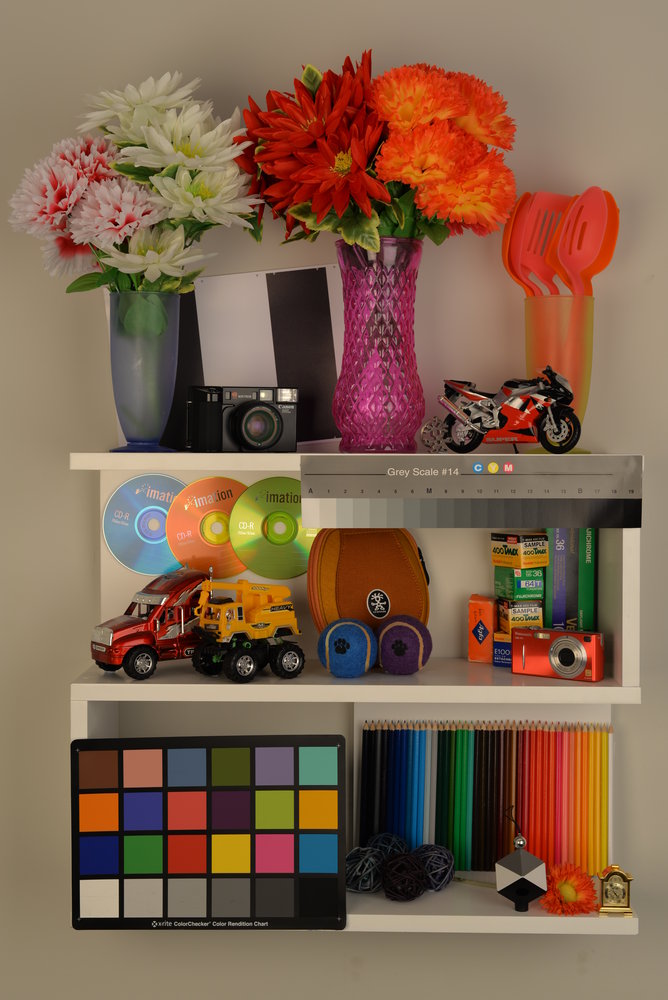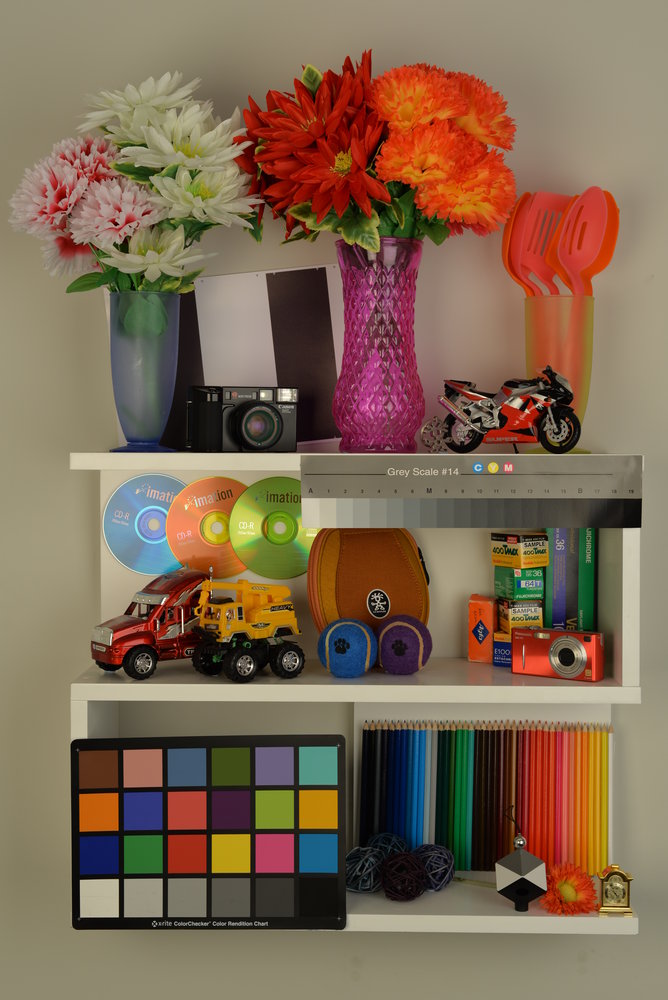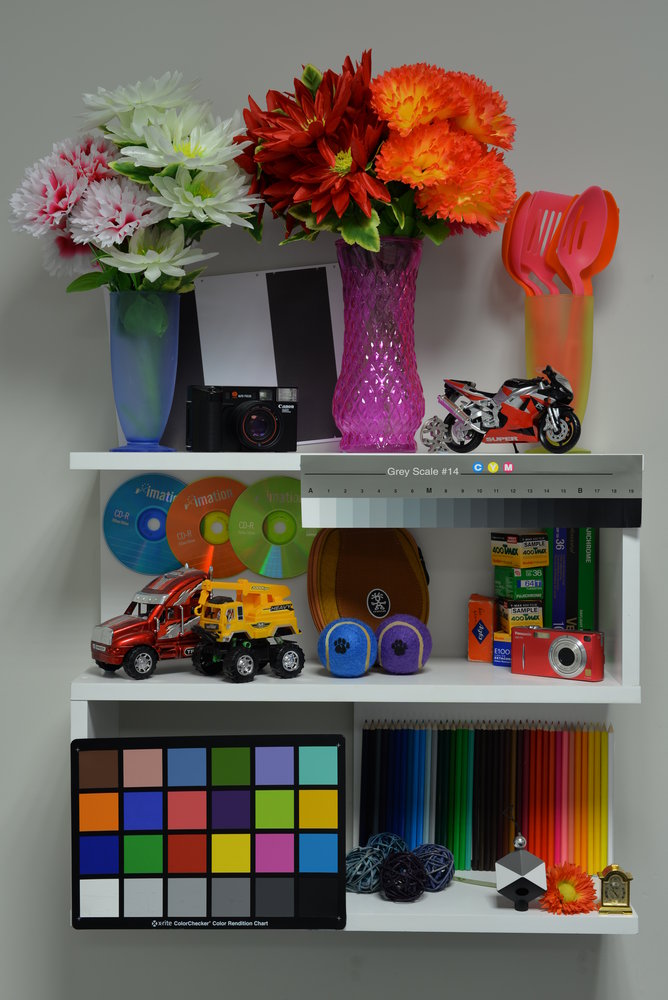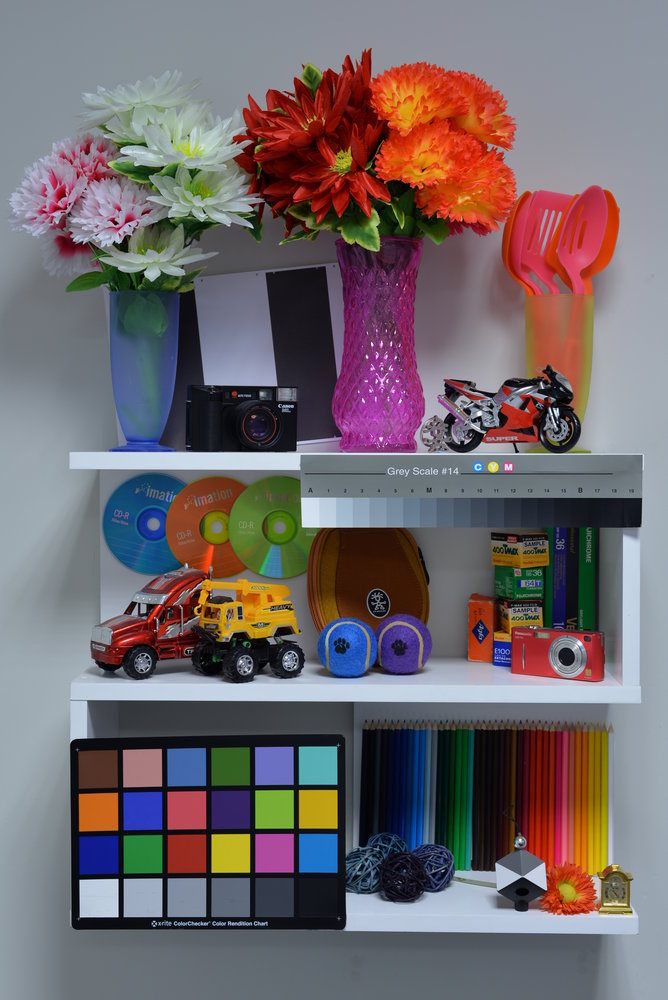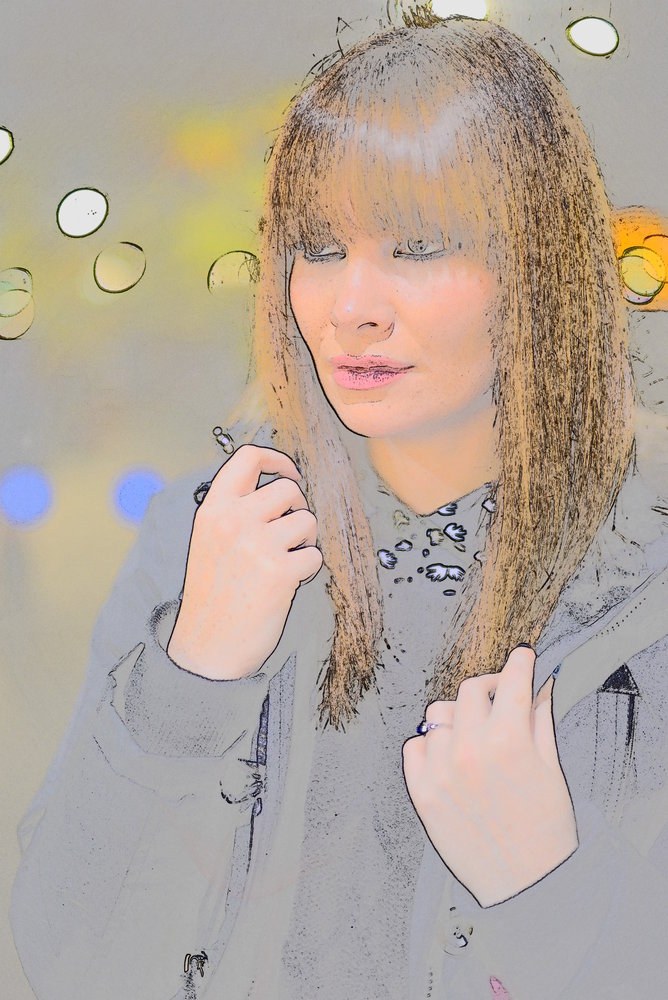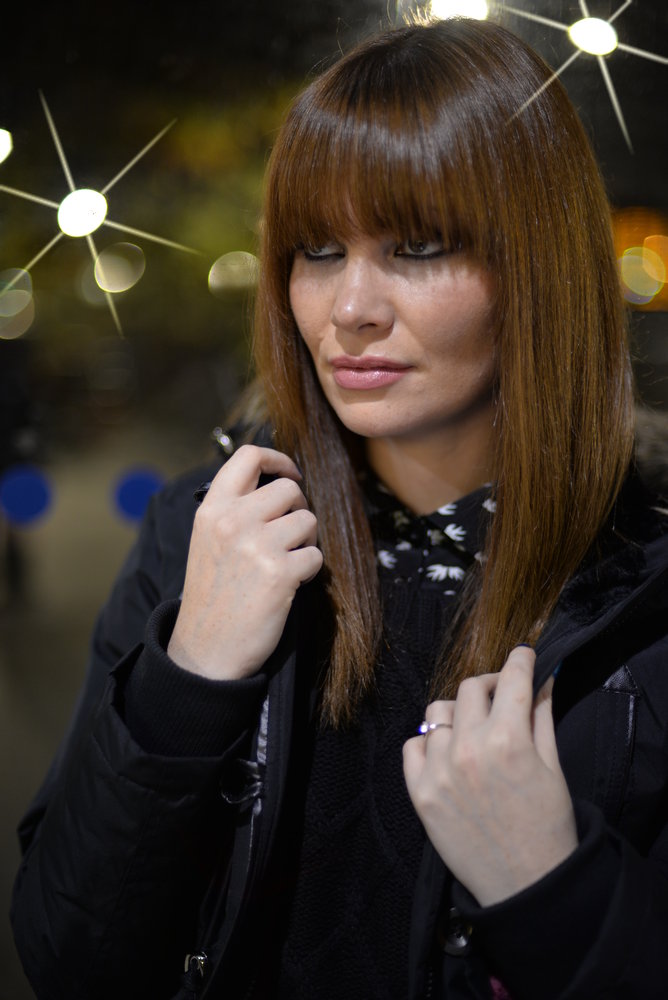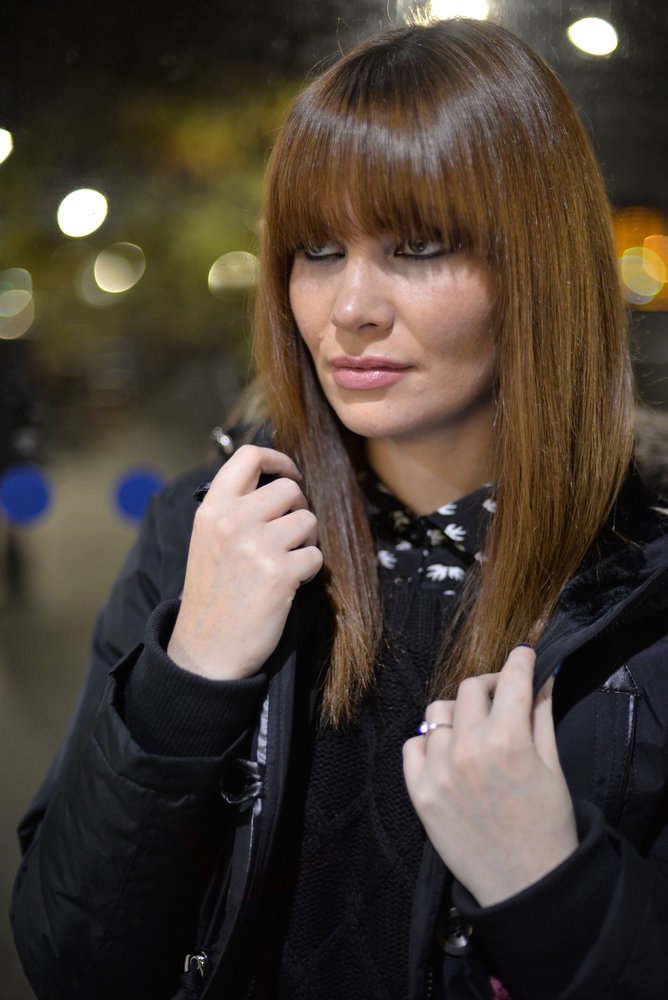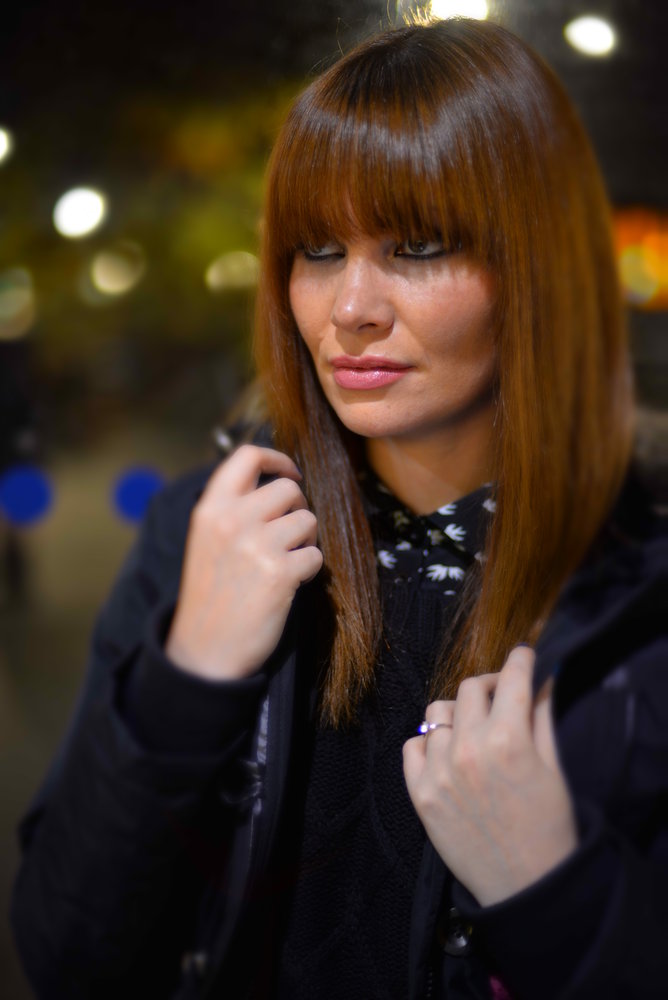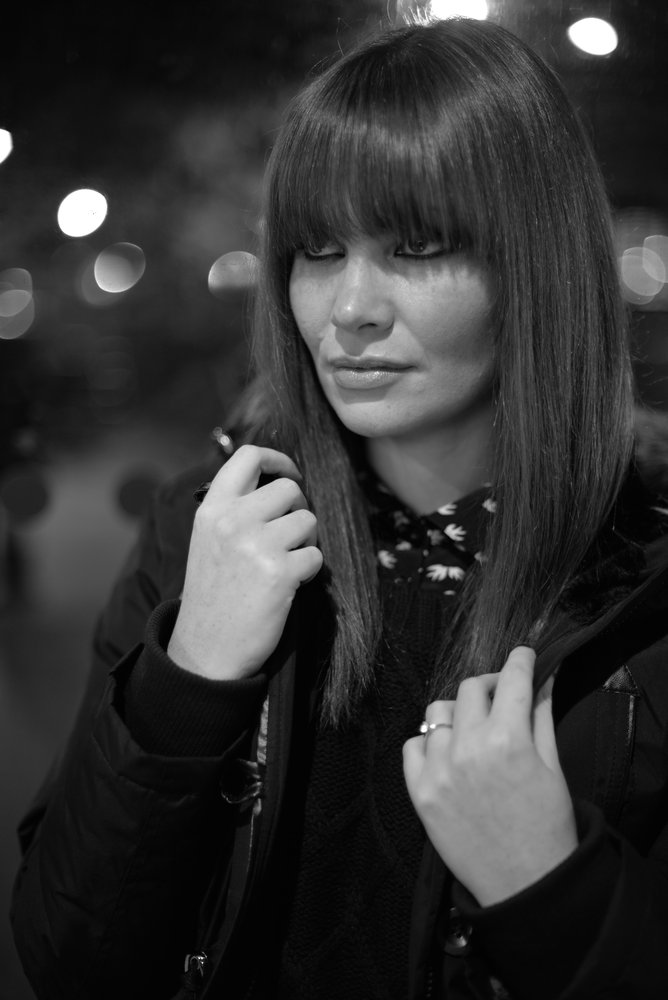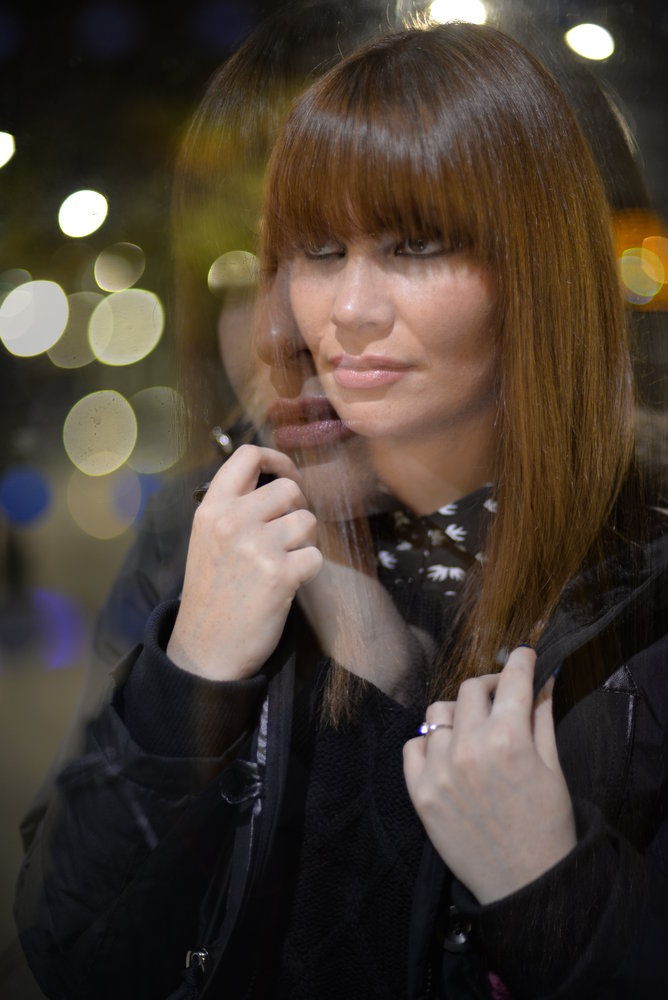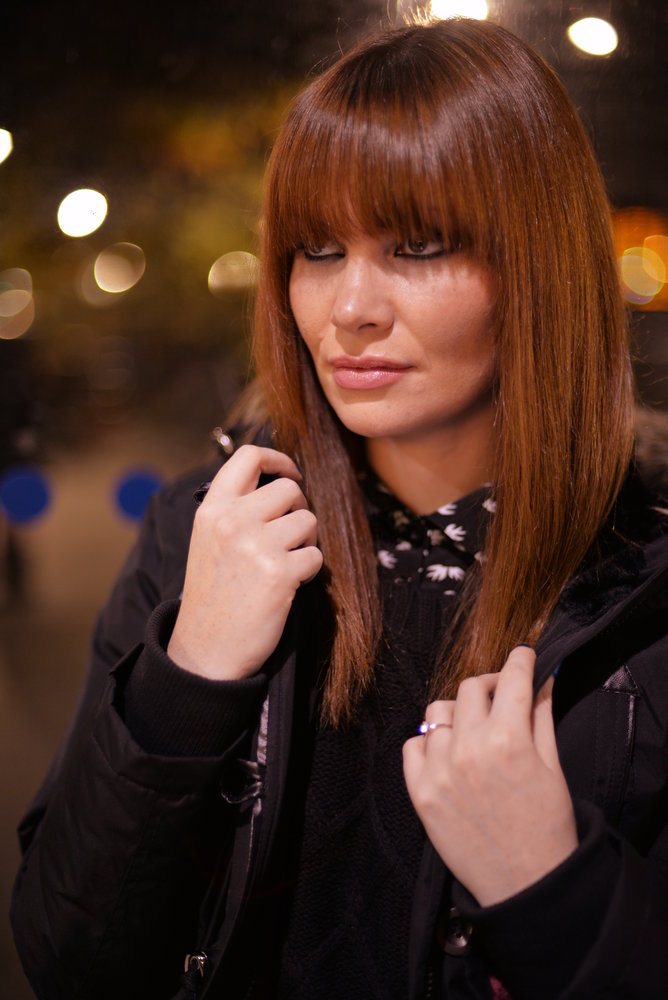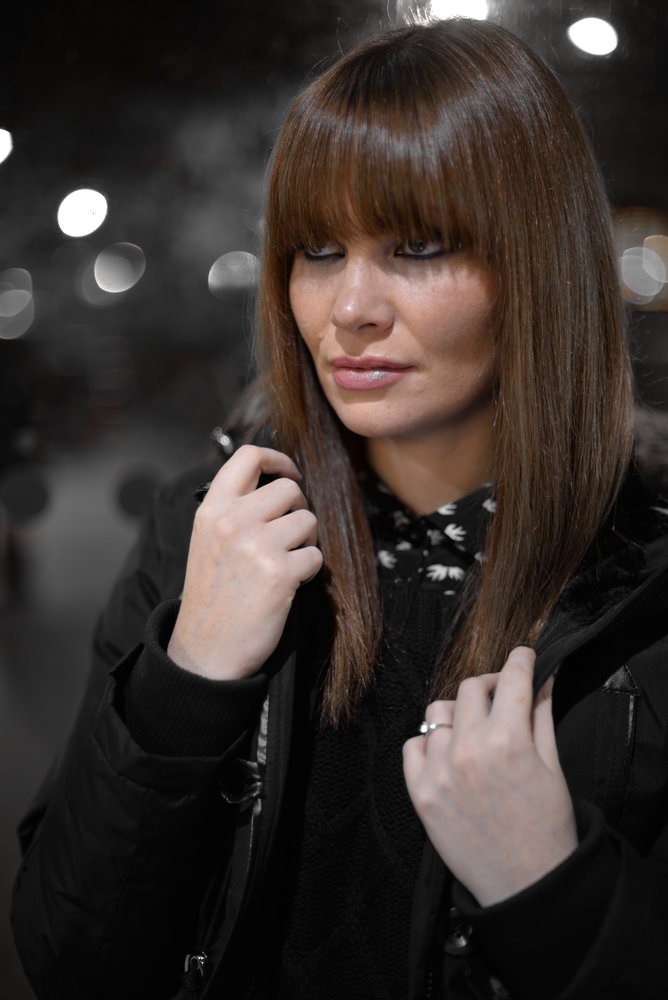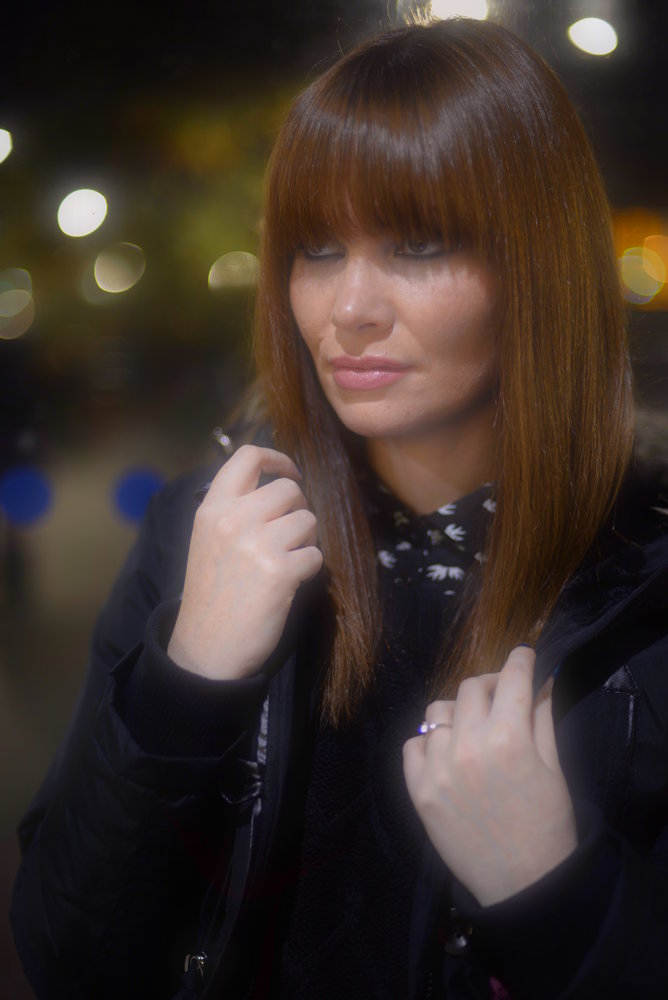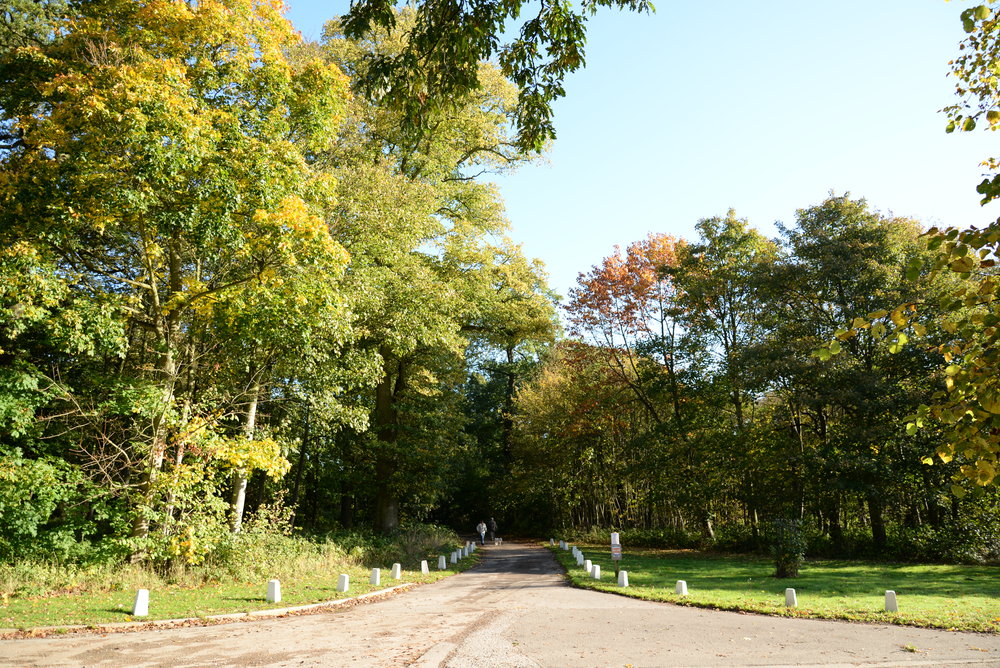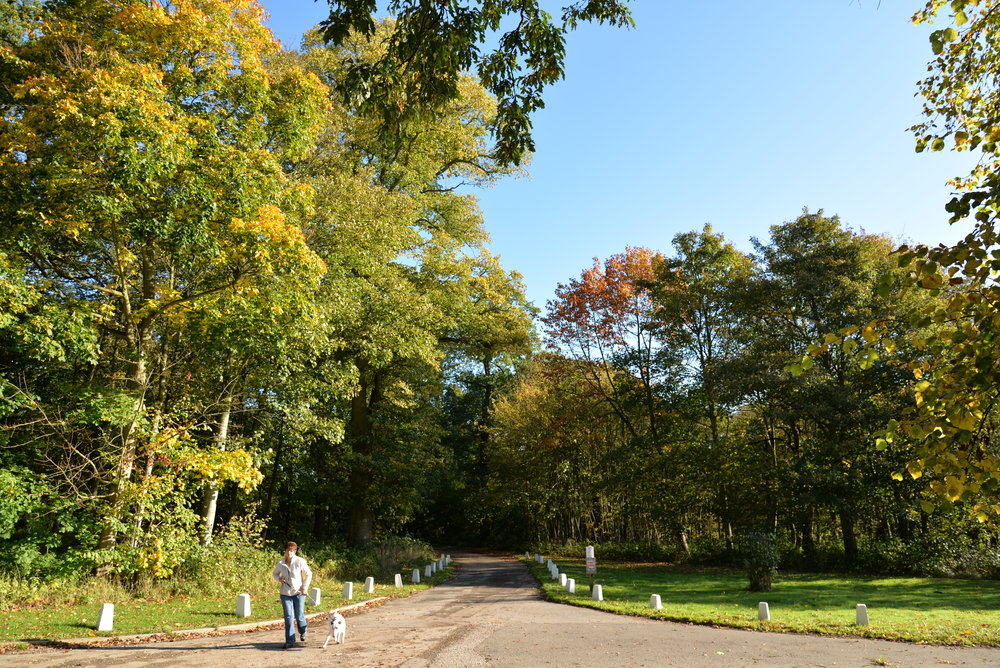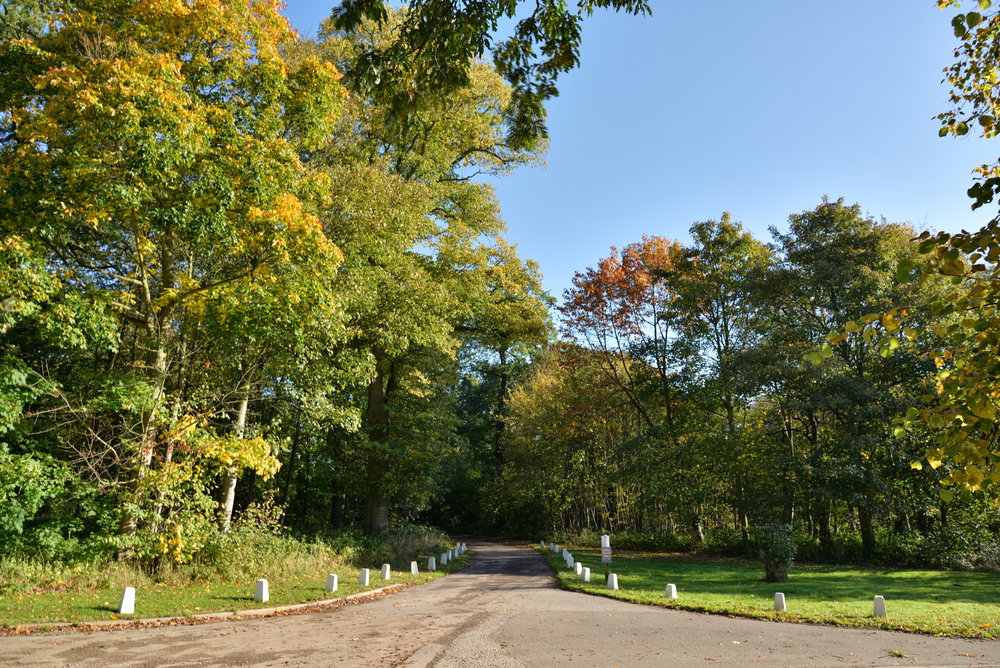Features
Handling
Performance
Verdict
Specification
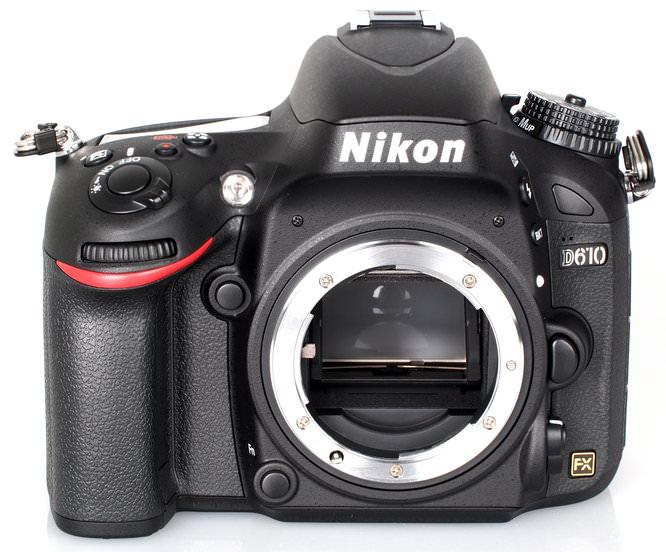
The Nikon D610 is this years update to the Nikon D600, shooting at 6fps, which is quicker than the 5.5fps of the D600, and features the same 24.3 megapixel full-frame sensor, full HD video recording, ISO50 to ISO25600, a large 3.2 inch screen, and a new quiet release continuous burst mode.
Nikon D610 Features
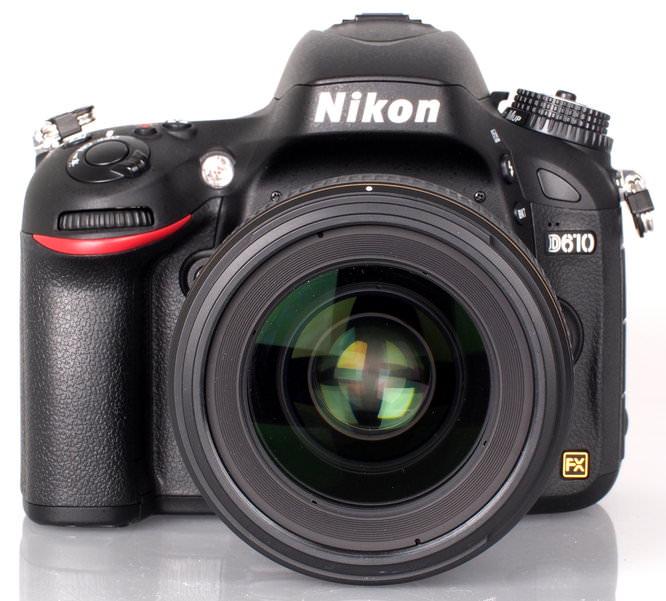
The Nikon D610, despite currently being Nikon's smallest full-frame digital SLR, features a fully loaded body, with ports and controls galore, with both headphone and microphone sockets, as well as dedicated shooting buttons and control dials. The D610 can also be expanded with an optional battery grip, and the body features a metal construction with weather sealing.
The Nikon D610 updates (and replaces) the Nikon D600, with a new faster 6fps continuous shooting mode, as well as a new quiet release burst shooting mode. Due to these improvements and updates, it would appear as though the Nikon D610 has an improved shutter unit, which should hopefully resolve the dust and oil spots problem that some Nikon D600 users suffered from.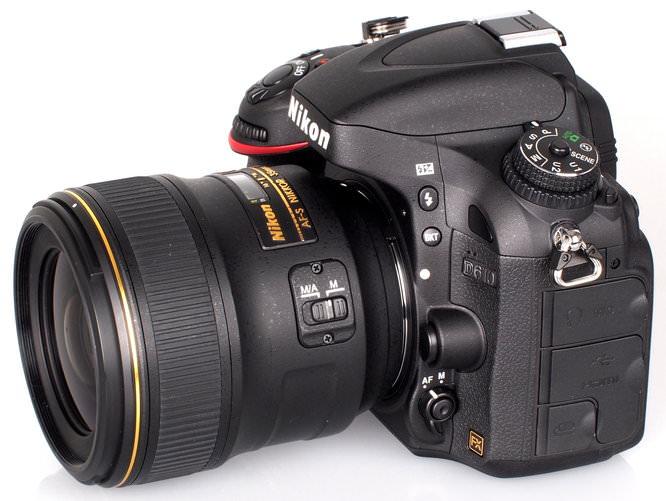
Key Features
- Full-frame 24.3 megapixel FX CMOS sensor
- Nikon F Mount
- 3.2 inch, approx. 921k-dot, wide-viewing-angle LCD monitor
- 100% viewfinder
- 39 point AF system
- Weather sealed body
- Full HD (1080p) movies in 30p, 25p and 24p
- ISO100 - 6400, extendable to ISO50 - ISO25600
- 6fps continuous shooting
- Twin SD card slot
- Headphone, Mic, HDMI, GPS sockets
- Optional WU-1b wireless mobile adapter
- Time-lapse shooting, with auto video creation
- Dual-axis electronic virtual horizon
- 900 shot battery life
Nikon D610 Handling
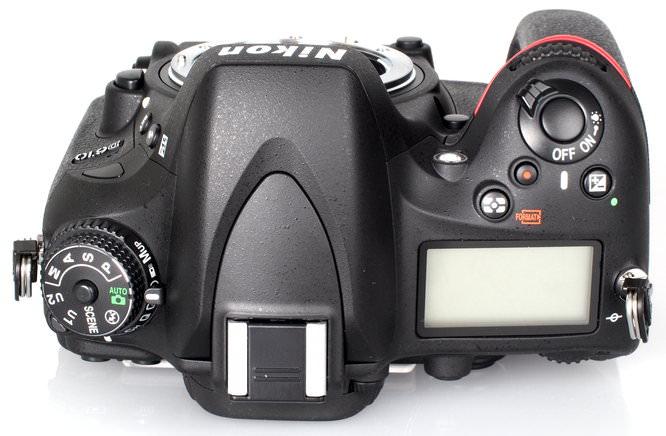
Handling - The D610 is one of the more compact full frame digital SLRs available, with a similar size to the original Canon EOS 300D, and Olympus E-30, although weighs more than the Canon EOS 6D, at 850g compared to 680g making it feel quite heavy if you attempt to use the camera with one hand. The body is weather sealed to the same standard as the Nikon D800, and features a magnesium alloy top and rear cover. The hand-grip is large and comfortable with a good sized rear rubber thumb grip. There is also rubber on the left hand side of the camera giving some additional grip, although the majority of the left side of the camera is used for the side ports.
The rear has a number of buttons and controls to give direct access to WB / ISO / Colour settings as well as shooting modes with a secondary dial neatly placed under the main mode dial. Like the main mode dial, this secondary drive dial can only be turned when you press the release button, and features quiet mode, quiet continuous mode, mirror lock up mode, as well as the standard self-timer and continuous shooting options. The camera feels very well made with a solid body that should last well, although only time will tell. There is a soft rubber eye surround, as well as dioptre adjustment, and the controls and dials for changing aperture / shutter speed and shooting settings fall easily to hand, making it easy and enjoyable to concentrate on shooting.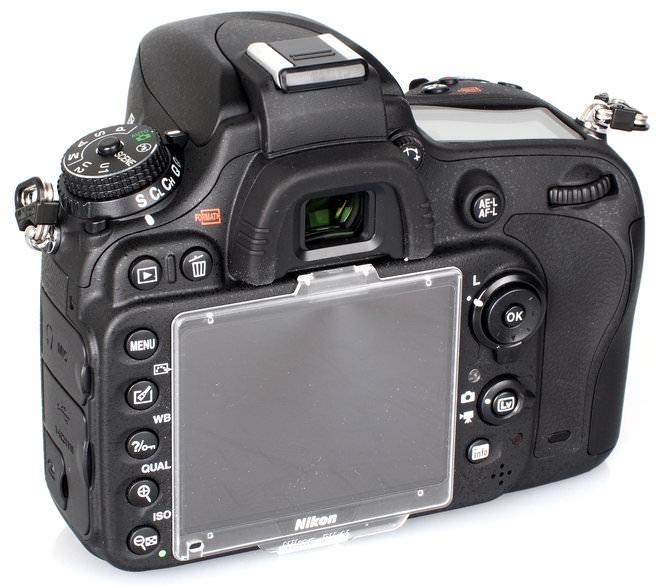
Menus – The menus are clearly laid out and the screen is extremely clear with excellent viewing angles. Although using live view in bright outdoor conditions it was occasionally difficult to see the screen - more so with the provided protective cover, as shown above. The menu system on the camera is split into six sections: Playback, Shooting, Custom Setting Menu, Setup, Retouch and My Menu. Navigating the settings is fairly straightforward and you can press the “?” button to bring up help on any setting. My Menu can be customised to allow quicker changes to your favourite settings.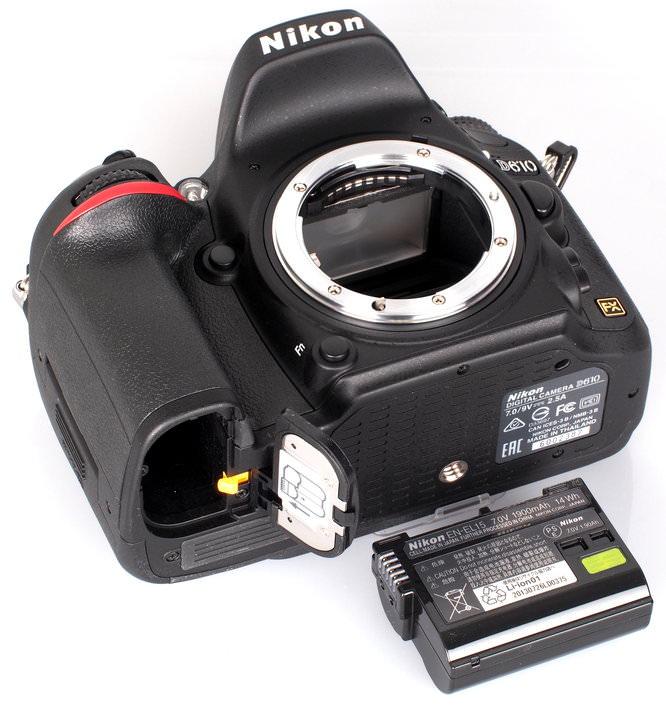
Battery life - Battery life is rated at 900 shots according to CIPA test results, using the time-lapse shooting feature we took over 3000 photos and the battery life was still showing as having 55% life left in battery information.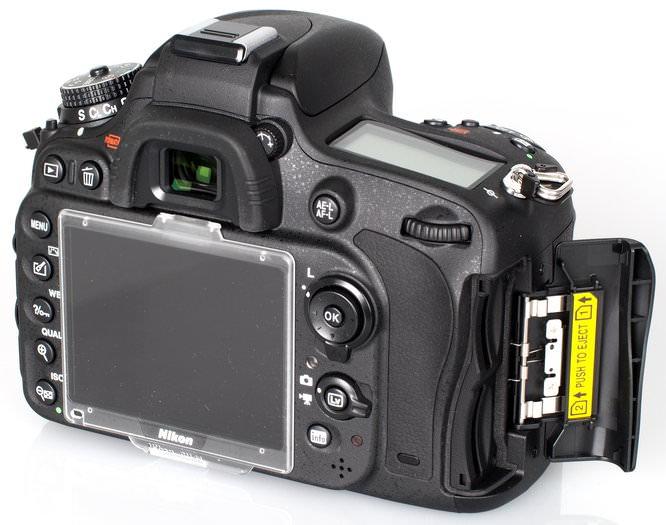
Speed – We took a number of shots to test the camera's responsiveness, from switch on to first photo, shot to shot, focusing speed etc. We take a number of shots and then use the average to ensure accurate and consistent tests, making it easy to compare with other cameras.
| Nikon D610 | |
| Shutter Response | 0.05 (0.15 in live view) |
| Wide - Focus / Shutter Response | 0.25 (1.5 in live view) |
| Full zoom - Focus / Shutter Response | 0.30 (1.4 in live view) |
| Switch on Time to Taking a Photo | 0.4s |
| Shot to Shot (without flash) | 0.4s |
| Shot to Shot with Flash | 1.7s |
| Continuous Shooting (JPEG) | 5.1fps (slows after 36 shots) |
| Continuous Shooting (RAW) | 5.3fps (slows after 14 shots) |
The camera has very quick shutter response, this is still quite quick in live view mode (this can be a problem with live view for some Digital SLRs). Focus is quick, but much slower in live view mode. Switch on time is excellent, as is shot to shot time, although this is much slower with flash.
Continuous shooting is very good at 5.1fps shooting JPEG, or 5.3fps when shooting raw, although not as quick as the 6fps suggested, and when shooting JPEGs it's possible to shoot a good number before it slows down. The quiet continuous shooting mode shoots at 3.2fps, and is quieter with weather sealed lenses than lenses that aren't sealed. Tested with a high speed Class 10 SDHC memory card. Nikon Nikkor 24-85mm VR lens used for focus and shutter response tests.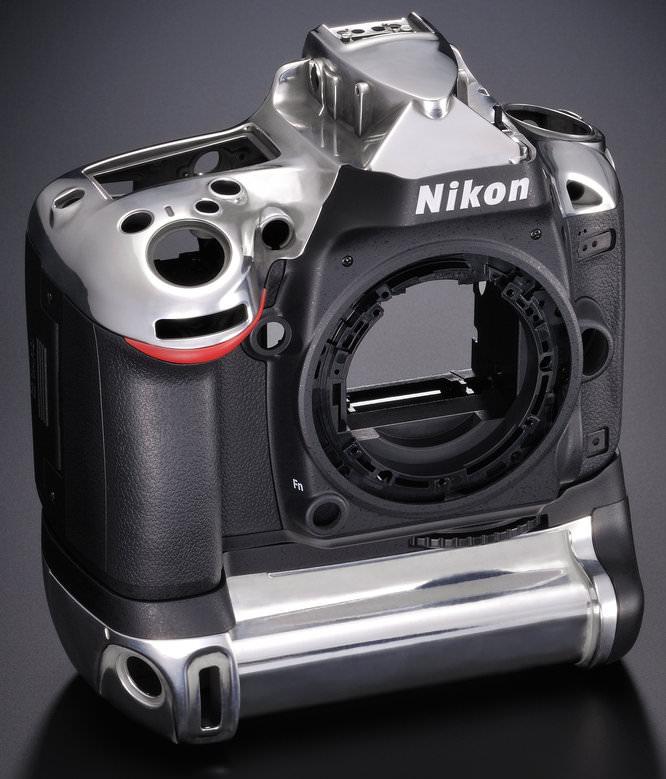
Nikon D610 Performance
Additional sample photos and product shots are available in the Equipment Database, where you can add your own review, photos and product ratings.
Nikon D610 Sample Photos
Sample Photos - The camera delivers clean images with low noise, good levels of detail, excellent colour, and dynamic range appears to be excellent, with D-lighting options including Off, Low, Normal, High, Extra High and Auto. With a full frame sensor and a bright lens like the Nikkor 50mm f/1.4, it's possible to create images with an extremely shallow depth of field, giving extremely pleasing background blur (bokeh), and subject separation.
Nikon D610 Lens test images
Lens Performance - The 24-85mm VR kit lens available with the Nikon D610 performs well at both the wide and telephoto ends. The lens doesn't give a very close focusing distance for macro photography, and if this is your preferred photography style, then there are a number of other lenses available. Purple fringing and CA (chromatic aberrations) are low.
There is noticeable barrel distortion at the wide end of the 24-85mm lens, and a little pincushion distortion at the telephoto end. There is also noticeable vignetting at both ends, but more so at the wide end. Options for vignette correction, and auto distortion control are available in camera, however we left auto distortion control off, and vignette control was set to normal.
Nikon D610 ISO test images
ISO Noise Performance - Noise is very low at ISO50, ISO100, ISO200 and ISO400, with some noise appearing at ISO800. There is a slight increase in noise at ISO1600, and then a more noticeable increase at ISO3200, although results are very good. Detail is very good even at high ISO settings, although there is a slight drop in detail at ISO6400 and noise is quite strong, and this increases again at ISO12800. At ISO25600 there is a very significant drop in detail, and this setting would be best avoided due to excessive noise. ISO settings: High ISO NR (Norm).
Nikon D610 White-balance test images
White Balance Performance - Auto White Balance (AWB) under tungsten lighting gives a warm image with a yellow cast, and using the tungsten preset does little to improve the image, instead giving a slightly greener cast. Using AWB under fluorescent lighting gives good results, and this is an improvement over the D600. Using the fluorescent preset (Cool White) gives a more neutral image, and for better colour using a preset or custom white balance is recommended. Outdoors, and under natural lighting this was not a problem, and auto white balance performed well.
Nikon D610 Digital filters
Digital Filters - The D610 has a number of options available for customising colour while taking a photo, with defaults including standard, neutral, vivid, monochrome, portrait, landscape, and these "Picture Controls" can be customised letting you set sharpness, contrast, brightness, saturation and hue.
In playback mode there is a retouch menu as well as built in RAW processor. Image effects include options for D-lighting, red-eye reduction, trim, monochrome, filter effects (warm, red, green, blue, cross screen, soft), colour balance, image overlay, resize, quick retouch, straighten, distortion control, fisheye, colour outline, colour sketch, perspective control, miniature effect, selective colour, movie edit. RAW processing options let you alter image quality, size, white balance, exposure, picture control, high ISO NR, colour space, vignette control, and D-lighting.
Nikon D610 Outdoor images
To expand the dynamic range captured, it's possible to set the D-Lighting options or use HDR shooting that automatically combines a number of shots at different exposures to produce one image with enhanced dynamic range. Examples can be seen above, although for the HDR shooting option a tripod is recommended for best results.
Video - Multi-area D-Movie records FX- and DX-format Full HD (1080p) movies in 30p, 25p and 24p. Max recording time is approx. 29 minutes 59 seconds. The camera offers uncompressed HDMI output to external devices and high-fidelity audio control. There are also Time Lapse Photography features to save images as movie files and view slow action in fast playback, with playback rates from 24 to 36,000 times faster than normal.
The Nikon D610 features a microphone and headphone socket which is extremely useful for anyone more seriously into video creation with a Digital SLR. We recorded the following video hand-held to see how the VR built into the lens coped.
Value For Money
The Nikon D610 is available for £1549 body only, although this is the current price, so may fall with time, and the previous version, the Nikon D600, is around £1200 while still available. The Canon EOS 6D is available for £1449, with 20.2 megapixels, features a lighter body, built in Wi-Fi and GPS, although slower continuous shooting, and lacks a headphone socket. The Nikon D800 is available for around £1950, with 36.3 megapixels. The Canon EOS 5D Mark III is available for £2329 with 22.3 megapixels. A new competitor recently announced is the full-frame Sony Alpha 7 mirrorless camera, with an RRP of £1300 body only.
You'll also need to buy a memory card and a case or bag to keep your camera safe and protected - have a look at our complete guide to camera bags.
Nikon D610 Verdict
The Nikon D610, like the D600 before, is a full-frame 24.3 megapixel camera with excellent image quality and performance. It offers excellent noise performance, excellent image quality with good detail even as the ISO setting increases, and puts it all into a rugged weather sealed body with a great 3.2inch screen. The camera offers advanced Full HD video recording with both microphone and headphone sockets, and video benefits from the full frame sensor in low-light situations. Handling is very good with a large rubber grip and ample buttons and controls on the outside of the camera so that you can avoid using the menu system if you prefer. A number of built in editing options, RAW processing, and video editing could save a lot of time as you are able to edit and customise photos and videos away from the computer.
For the cynical, this is the camera that the D600 should have been, with seemingly no sensor issues (we took over 3000 shots and could not see any problems), or for the not so cynical, this is a slight update on an already excellent camera. The fact that the camera is available for around £1550 body makes it very good value for money for a new full-frame camera, although if you want to save money, the D600 is even better value for money. Although we're a little disappointed that this is just a minor update, and there don't appear to be any other advantages in image quality, with noise unable to match the performance of the Canon EOS 6D.
The D610 gives improved 6fps continuous shooting and a number of advanced features make it versatile and suitable for a number of different situations, although for best results a prime lens is recommended rather than the kit lens. For example built in time-lapse video creation could save a lot of time, and the electronic level could save further time correcting images later. The camera comes with a printed manual, wide strap, and 2 year warranty further expanding the appeal of the camera, and for those looking for a "traditional" Digital SLR the Nikon D610 comes Highly Recommended.
The Nikon D610 performs extremely well with excellent image quality and a good weather sealed body.
